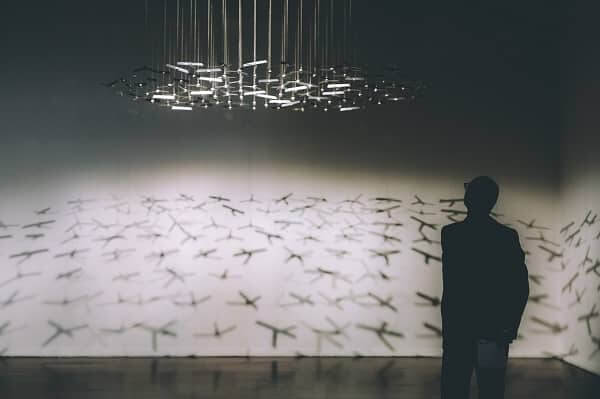Art is not what you see, but what you make others see
Edgar Degas
In commemoration of the 70th anniversary of the tragic India-Pakistan Partition, the Perth Institute of Contemporary Arts (PICA) opened the exhibition I Don’t Want To Be There When It Happens on 11 November.

The Partition of India occurred on August 15, 1947, and involved a massive wave of migration, with millions of Muslims heading towards what would become Pakistan, and many Sikhs and Hindus heading back down onto Indian territory.

With political and religious tensions on the rise, riots were not uncommon during this time, and when there are close to 16 million people displaced, travelling by train, foot and ox carts, the innumerable casualties of the Partition period seem less surprising.
Recent estimates put the death toll to be somewhere between 200,000 and 2 million, with over 100,000 women raped or abducted.
Such widespread violence, trauma and religious intolerance would have directly or indirectly affected the lives of so many, as made evident through the art exhibited in I Don’t Want To Be There When It Happens.
The exhibition incorporated the works of Pakistani, Indian and Bangladeshi artists, including Abdullah M. I. Syed, Reena Saini Kallat, Raj Kumar, Adeela Suleman, Sonia Leber, David Chesworth and Mithu Sen.
A variety of modalities were presented, from sculptures and video installations, to photograph series and drawings.

One of the most striking exhibits was Saline Notations, a series of digital prints of photographs taken by Delhi artist Reena Saini Kallat. In these works, Kallat presents lines from Rabindranath Tagore’s poem about being freed from our own mental chains, Where the Mind is Without Fear (1900), written in salt on the beach. This highlights the “fragility and unpredictability of existence, and the gradual washing away of an expression of the dissipating nature of liberation.” Lines such as “Do you silence my protest? Should I protest your silence?” are poignantly thought-provoking, encouraging exhibition visitors to reflect on complex issues surrounding culture, identity and perspective in relation to the way in which different communities interact with one another.
Mithu Sen was another Delhi-based artist featured in the exhibition. Whilst her drawing RIP – Another Time Another Stomach delved into ideas of self-representation and identity, the video installation I Have Only One Language; It Is Not Mine, powerfully showed the limitations of language as well as the complexity of the ripple-effects of routine violence against women. Both pieces explored common themes of gender stereotypes and the issue of communal violence in India and its effects on the body and psyche.

Dr Eugenio Viola, curator of the Perth edition of this exhibition, has travelled extensively throughout northern India, working closely with an array of Indian artists, including Mithu Sen. He believes that art is a means to “face the fragile issues of our world including religious intolerance, racial profiling, terrorism and ethnic conflict, as well as attempt to foster empathy within the complex web of languages, religion, cultures and varying historical perspectives that shape our globalised society”.
I Don’t Want To Be There When It Happens was organised in partnership with 4A Centre for Contemporary Asian Art, Sydney, where a few of the works were on display from 18 August to 8 October 2017.
The complete Perth edition will be on exhibit at PICA Galleries, Perth Cultural Centre, 51 James Street, Northbridge until Sunday, December 24 2017.





